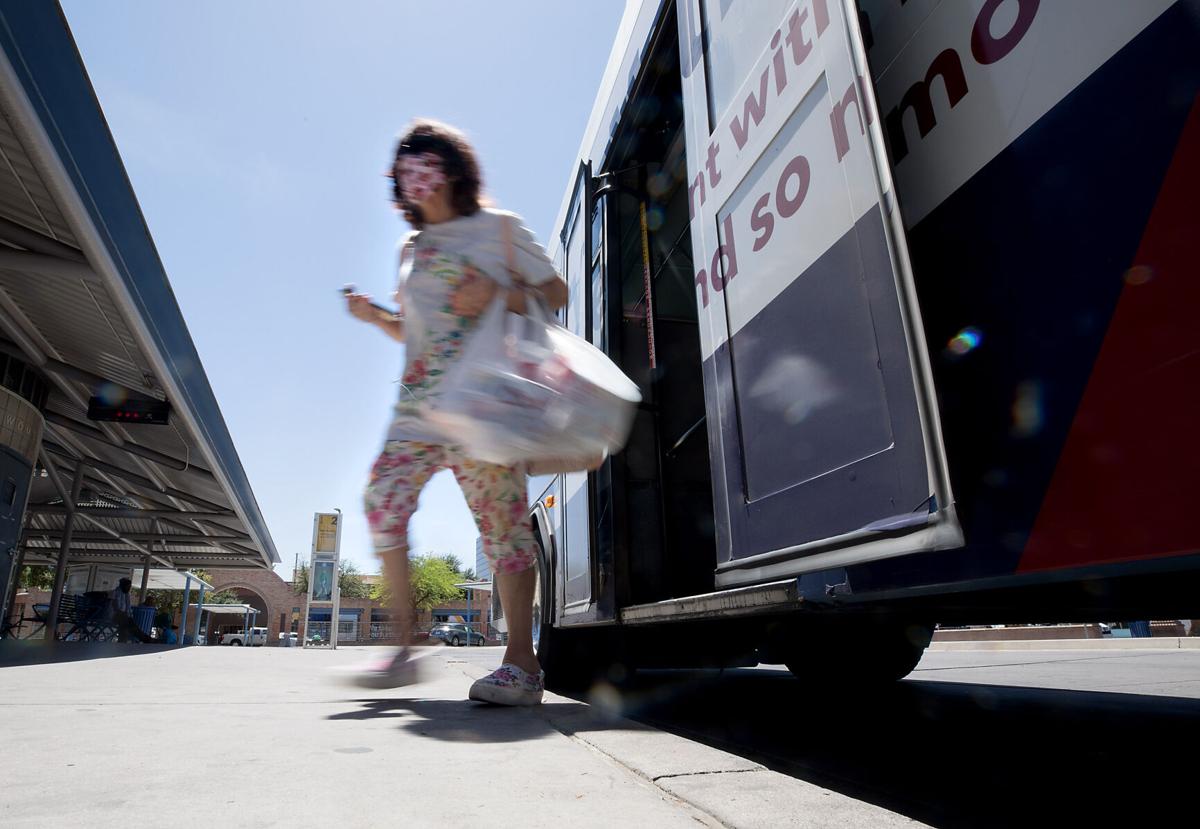Tucson’s transit fares will remain free through the end of the year.
The City Council voted unanimously Tuesday to extend the moratorium on fares as it waits for buy-in from other regional entities to raise enough money to keep the local transportation system permanently free for riders.
The motion the council passed holds that the city declares “our intention to go fare-free transit until there’s an affirmative vote to reinstitute those fares” after a Title VI analysis determining whether the change is equitable.
The motion also calls for the creation of a stakeholder group of riders, drivers, operators and community members to create long-term funding solutions and ideas to improve service. Tucson will also continue seeking regional partnerships to subsidize free transit, the motion said.
It will cost the city about $4.6 million to keep fares free until Dec. 31, according to City Manager Michael Ortega, who identified a variety of funding sources to subsidize fares.
Tucson’s Sun Tran, Sun Link and Sun Van have been operating free of charge since March 2020 as a pandemic-related measure. This is the fifth time the council has extended the free-fare system.
The total cost to operate Tucson’s public transit system was about $107 million last fiscal year, according to the city. About $47 million in American Rescue Plan funds and $20 million of the city’s general fund covered the bulk of transportation costs, while the remainder came from federal grants, the Regional Transportation Authority and advertising revenue.
Tucson estimates it’s lost $30 million in fare revenues in the past three years.
The city is looking for local partners to invest in the transit system to make up for about a $10 million shortfall in lost fares next year. Mayor Regina Romero sent letters to the heads of the University of Arizona, Pima Community College and the Tucson Unified School District to ask them to contribute funding after a city-issued study revealed high ridership among the entities’ students and staff.
Ortega has identified $5 million from the city’s investment plan that could fund part of the $10 million shortfall, but told the council members “that shortfall is going to change and probably go up over time as operational costs go up.” The investment plan is a five-year spending plan for about $232 million of the city’s fund balance to address key needs like climate action and public safety.
While the city has yet to figure out a funding mechanism if regional partners don’t come up with the other $5 million to fill the gap in funding, Council Member Steve Kozachik said it’s time for the city to “rip the band-aid off” and declare its intentions to go fare-free, regardless.
“I don’t agree that us treading water on the decision about fares is necessary to get the other stakeholders at the table,” Council Member Steve Kozachik said. “My approach would be let’s ante up, show them what we’re willing to put in and show them that we do have skin in the game. Now you come to the table and match it.”
Council Member Nikki Lee was more reticent, considering that any transit funding partners would have to commit to recurring, and not one-time, investments.
“This does make me nervous … because of the ongoing component of this and not knowing who is going to come to the table,” she said. “The negotiation is really important to make sure that we’re truly understanding the objectives of our partners … so it’s not just ‘Hey, this is what you guys should be chipping in,’ more of a mutually beneficial relationship, otherwise, I’m afraid we’re not going to get them to the table.”
Get your morning recap of today's local news and read the full stories here: http://tucne.ws/morning





